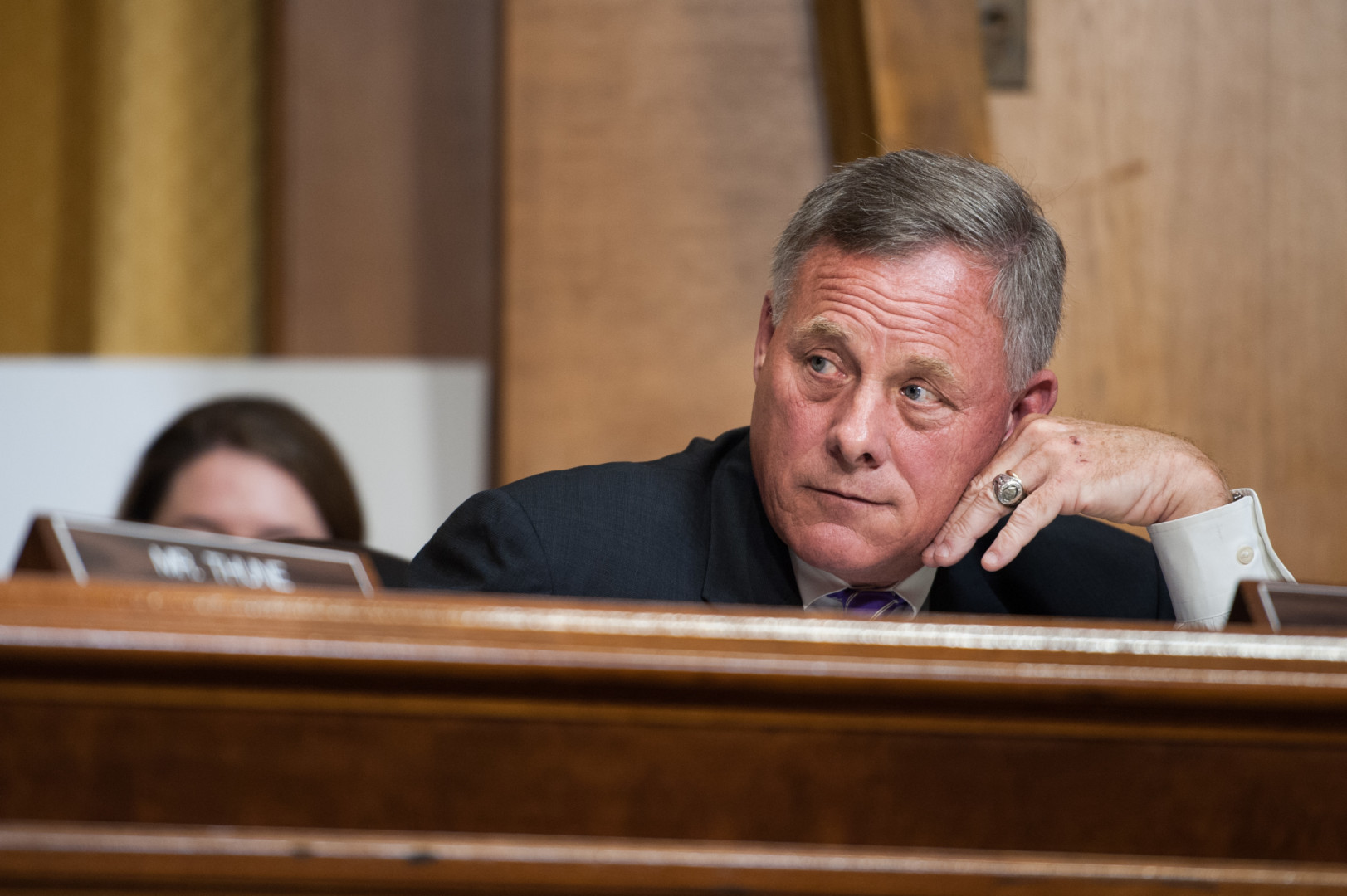North Carolina Sen. Richard Burr has homed in on his Democratic challenger’s American Civil Liberties Union record, hitting most forcefully on her opposition to a sex offender registry.
Burr’s campaign has launched an attack website featuring comments that Deborah Ross, also a former state senator, made while lobbying against the registry. The campaign has put a similar message on television in hard-hitting campaign ads that are echoed by his allies.
Burr’s campaign says the sex offender registry issue should not be viewed on its own, but as a piece of a larger portrait of his rival as a “radical.” The vulnerable GOP incumbent has also hit Ross for her defense of people who burned flags while she led the state ACLU chapter, a charge his campaign hopes will unsettle voters. She was also a state representative.
So far, Burr and his allies have not spent money on a message that they hope lure African Americans voters to his camp. In 1997, her work for the ACLU sided her with Ku Klux Klan members hoping to demonstrate in Asheville. She also defended the Sons of Confederate Veterans as it sought a license plate from the state’s Department of Motor Vehicles emblazoned with a Confederate emblem. In 2000, she supported students who were sent home for wearing shirts featuring the Confederate flag.
During a debate with Burr last week, Ross said she had “experience working on racial bias issues,” adding that she “worked on one of the comprehensive anti-racial profiling laws in the country.”
Democrats close to Ross defended her ACLU work, framing it as a First Amendment issue. They would be happy to engage in a fight over black voters. “The African American electorate is generally not going buy into the overblown, over the top, racial attack on a civil rights attorney,” said Courtney Crowder, a local Democratic consultant.
African Americans make up more than 22 percent of the state’s voting population, according to a state registry, and the black voting population has grown faster than any other demographic group in the state since 2008.
“The dirty secret about close races is that every voter matters,” said Nathan Gonzales, publisher of the Rothenburg & Gonzales Political Report. “If the North Carolina races are close, as we expect them to be, then yes, black voters will matter. But so will white voters. Women will matter, but so will men.”
The first Burr commercial mentioning the sex registry launched at the end of September. It features Kelly Lowe, a Marine sergeant and anti-sexual assault advocate who has said she was raped. In Lowe’s view, Ross wants “to protect sexual predators over victims.”
The Raleigh News & Observer’s editorial board defended Ross over Burr’s charges last month, saying she raised “legitimate concerns” over privacy and safety of offenders trying to reintegrate into society. The newspaper has also endorsed her in the race.
In the response ad, Ross pointed to votes she took in the state legislature to “strengthen the law against sex offenders,” and hit Burr over his own opposition to legislation in 2012 to fund federal programs for sexual assault victims. She featured the bill’s sponsor praising her in another lighthearted spot.
In a press release, her campaign attempted to flip the script – accusing Burr of standing with an “admitted sexual predator” by supporting Trump for president.
Much of this debate is taking place in paid advertising rather than the press, said Crowder and a handful of other operatives of both parties working on the race. They agree that the local political bandwidth has focused on the presidential contest and Republican Gov. Pat McCrory, who is facing a tough challenge from the state’s Democratic attorney general, Roy Cooper.
This has been a particular point of frustration for Republicans in the Senate race, who do not believe Ross has been well-vetted by the local news media.
Republicans have already spent more than $15.4 million to run ads in the state. As of last week, Democrats had spent more than $13.3 million to beat the incumbent, according to an ad-buying source. Republicans expect they will be outspent in the final weeks of the race.
The Democratic Senatorial Campaign Committee, which is backing Ross’s candidacy, has spent more than $4.1 million through its independent expenditure arm. The campaign arm is trying to paint Burr as corrupt, accusing him of backing a Medicaid plan supported by the insurance industry after taking campaign contributions from it.
Democrats need to pick up five seats to gain the Senate majority (or four seats if they retain the White House). As both sides have upped their spending in the final stretch, the race is a dead heat. A NBC/WSJ/Marist poll released Thursday showed the race tied at 46 percent, while other surveys have given Burr a slight advantage within their margins of error.
About one-third of voters disapprove of Burr’s job performance, according to the Morning Consult Political Index, ranking him 87th in favorability among his colleagues.

